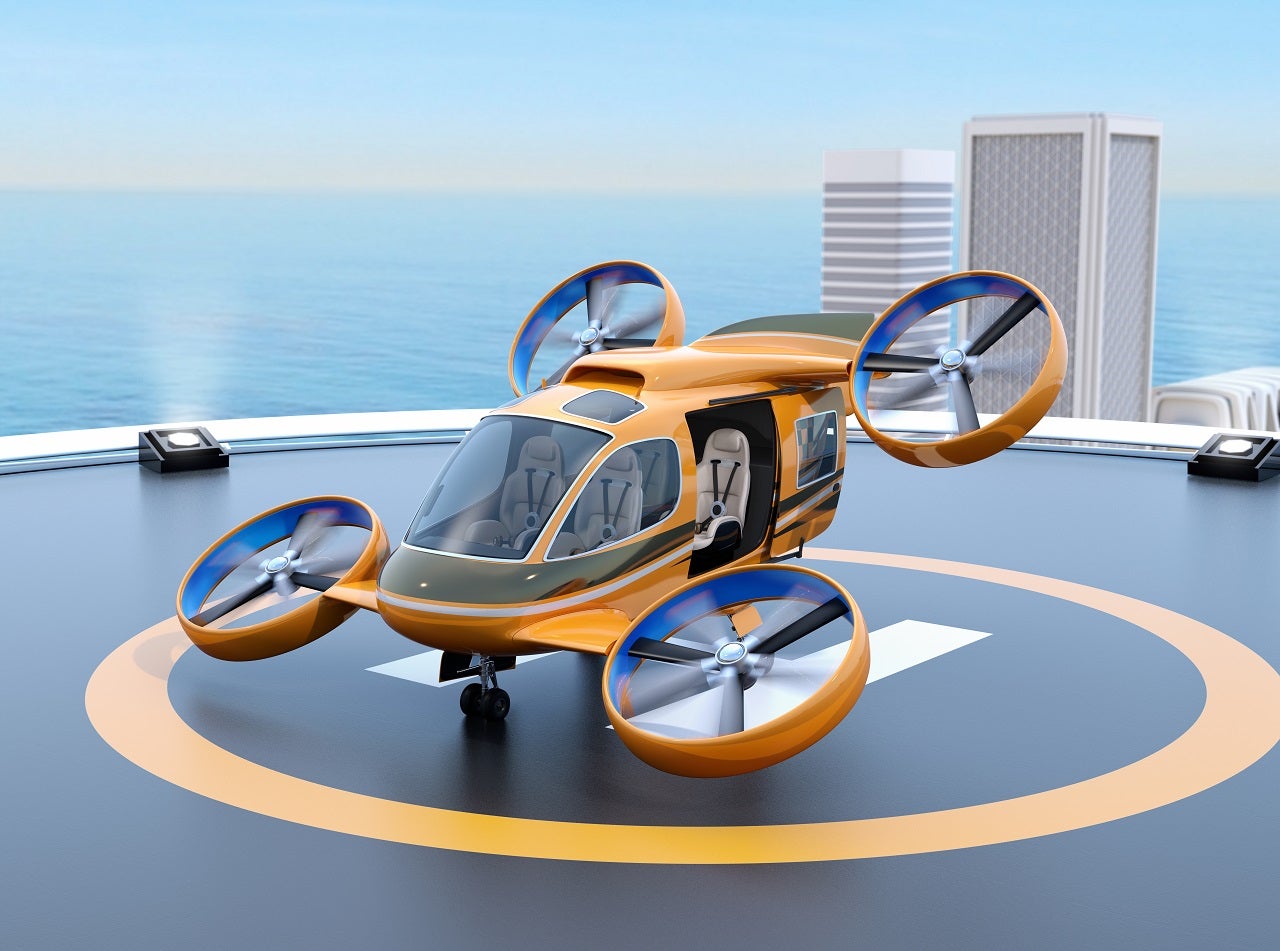AIR TAXI: The next modern urban mobility transport system

Did you know that Saudi Arabia is the first country to conduct the first air taxi trial for transporting Hajj pilgrims?
On the 24th week week in 2024 (2nd week of June), the Kingdom of Saudi Arabia carried out its first trial of air taxis in Makkah for their future use during the Hajj pilgrimage, as the Kingdom looks to further streamline the industry in its increasing tech-driven modernisation drive.
Led by the Saudi General Authority of Civil Aviation (GACA) in collaboration with the Ministry of Transport and Logistics Services, the Ministry of Hajj, the Ministry of Interior and Front End Limited Company, the EH216-S pilotless eVTOL aircraft, branded the ‘World’s first air taxi to be licensed by a civil aviation authority’, was successfully flown this week in an inaugural trial which saw the air taxi take off vertically.
The air taxi market is an application of Advanced Air Mobility (AAM) - air transportation systems that utilize advanced technologies such as vertical takeoffs, autonomous capabilities, or fully-electric systems - for short to mid range on-demand flights. Many AAM vehicles are designed for Short Takeoff and Landing (STOL) or Vertical Takeoff and Landings (VTOL); electric VTOL aircraft are also prominent, known as eVTOLs. Another noteworthy term for the air taxi market is Urban Air Mobility (UAM), which is a sub-category of AAM focused on applications in urban settings.
The concept of air taxis existed as early as the 1910s to 1950s. This concept goes back as early as 1917 with Glenn Curtiss’ prototype, the auto-plane. Furthermore, during the 1920s to the late 1950s, various inventors created their own prototypes. Such inventors included Henry Ford, Waldo Waterman, and Moulton “Molt” Taylor.
However, each of these projects faced challenges which included crashes, lack of funding, or technical difficulties. After all this experimentation and challenges faced, the urban air mobility industry had shifted focus on “improving safety and enhancing economic and operational efficiency of vertical flight".
The next phase from the 1950s to the late 1980s included urban air mobility services through the use of helicopters within major cities such as Los Angeles, San Francisco, and New York; however, the challenges of fuel costs and safety have made it difficult to commercialize using helicopters for urban air mobility.
During the 2010s to the present day, there was the “reemergence” of catering to “on-demand aviation services” that focus on goods delivery and passenger mobility such as the ability of booking a helicopter through a smartphone. BLADE, SkyRyde, and UberCopter are just some examples of companies that are offering passenger mobility helicopter services.
Additionally, NASA and the United States Air Force initiated a focus to improve safety and scalability of UAM systems through the launch of the AAM National Campaign and Agility Prime. NASA showed this initiative by signing agreements with 17 companies to test UAM vehicles and systems. On the other hand, the U.S. Air Force's Agility Prime program demonstrates a focus on scalability through exploring vertical flight opportunities for military applications.
Meanwhile, GACA’s president, Abdulaziz Al-Duailej, who witnessed the Saudi Arabia trial, stated that the trial “marks a major advancement in integrating Advanced Air Mobility solutions into Saudi Arabia’s aviation landscape.”
Emphasising GACA’s commitment to “enabling new safe and sustainable forms of air transport, elevating travel for pilgrims and passengers across Saudi Arabia”, Al-Duailej said the “trial acts as a proof of concept for multiple use cases and contributes to the advancement of mobility solutions across the Kingdom”.
In the coming years, the air taxis will perform a variety of services including transporting pilgrims between the holy sites, facilitating emergency travel, transporting medical equipment and providing logistical services for the transportation of goods.
According to Saleh Al-Jasser, the Saudi Minister of Transport and Logistics Services, the “groundbreaking trial is a pivotal step towards a faster, more efficient and sustainable Hajj travel. Saudi Arabia is leveraging pioneering technologies to empower pilgrims with a seamless and sustainable pilgrimage experience.”
The Minister also highlighted the trial as a significant development to the Kingdom’s advancement of technological capabilities in numerous sectors, stressing that the initiative is part of the Ministry’s aims to adopt the latest transportation technologies and environmentally-friendly transportation models powered by artificial intelligence.
#penglobalfactfile #airtaxi


_1755775186.jpg)
